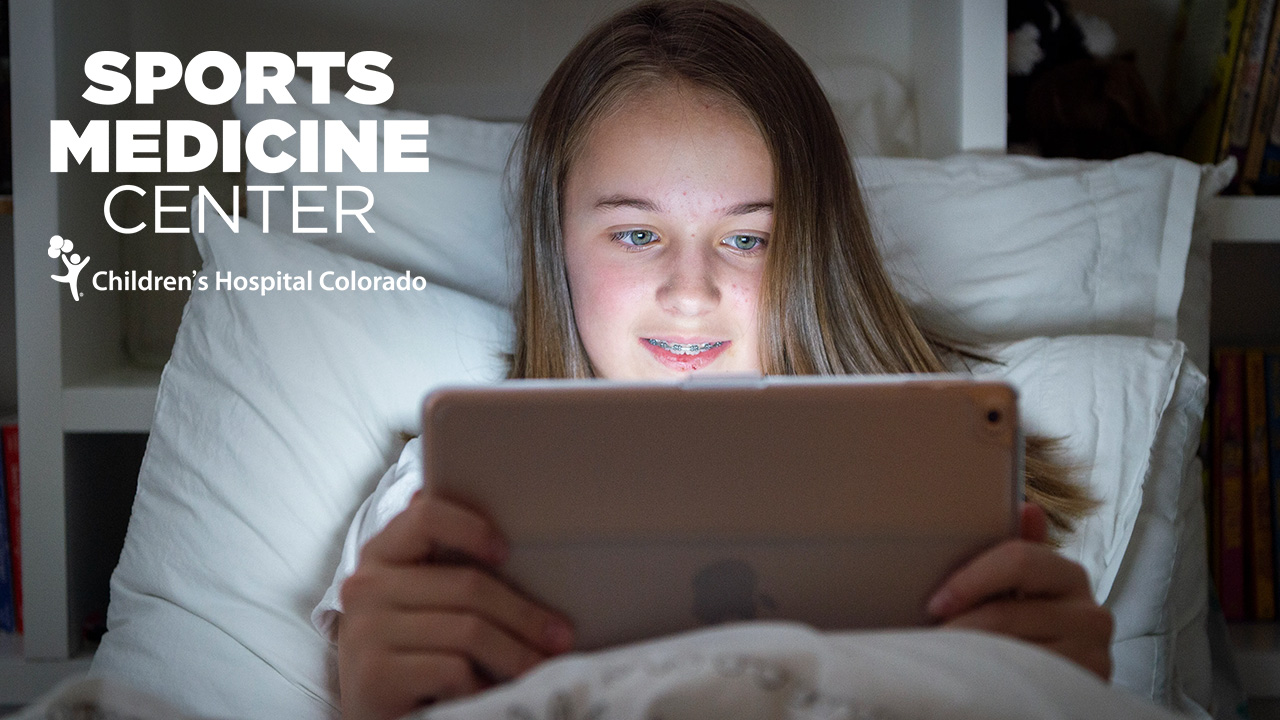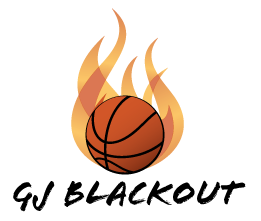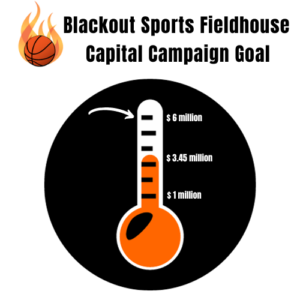You already know that sleep plays an important role in a young athlete’s energy levels. But did you know that insufficient rest can also limit reaction time, reduce cognitive function and even increase the risk of injury? In this article, our partners at Children’s Hospital Colorado explain how sleep impacts athletic performance. You’ll also learn key strategies for improving your child’s sleep, plus tips for travel, technology and more.
Teens need about nine to 10 hours of sleep every night, and statistically, many of them don’t get it. In fact, half of teenagers report feeling tired all day. Due to their academic and athletic workloads, young athletes may get even less sleep than their peers.
“Sleep is one of the three pillars of health, along with nutrition and exercise says Dan Lepping, athletic trainer at the Sports Medicine Center at Children’s Hospital Colorado. “It also triggers a cascade of events that allows our body to recover and become stronger from the stresses that were imposed on it through exercise as well as our daily activities. Any person who wants to be an elite performer needs to focus on getting elite sleep.”
Research shows that anywhere from 70% to 89% of teens are not sleeping enough. The Centers for Disease Control and Prevention (CDC) recommends teens get about 9 to10 hours of sleep a night, but many are reporting an average of 7 hours. To help young athletes get a good night’s rest — and play their best —Lepping offers five reasons sleep is key to a good game, plus five ways to sleep better.
Five ways sleep impacts athletic performance
Accuracy and reaction times
- In one study, increased sleep among college men’s basketball players improved their free throw and 3-point accuracy by 9% and produced better sprint speed and reaction times.
- Another study of college women’s tennis players showed increased sleep led to better scores in matches and improved serving accuracy from 36% to 42%.
- Yet another study showed a 17% improvement in reaction times off the start block for swimmers.
Endurance
- Decreased sleep makes athletes feel exhausted sooner and increases athletes’ perception of the effort it takes to perform.
- Good sleep improves glucose metabolism, which leads to increased energy and a better mood.
Motor memory and cognitive function
- Nine to 10 hours of continuous sleep helps with muscle memory. Without it, the sport-specific muscle techniques athletes spend hours training for won’t stick as well.
- Increased sleep results in better reaction times, coordination and split-second decision-making.
Injury risk and recovery
- Human growth hormone is important for tissue repair, as well as muscle and bone development — and it’s only secreted during deep sleep.
- Cortisol, the “stress hormone,” is hard on the body, and sleep decreases it. The result: less frequent illness and faster recovery.
Overall performance
- Good sleep is important — even for professionals. One sleep study of Major League Baseball players showed significantly better strike zone judgment in well rested players.
- A similar study measured players’ sleepiness and found that, while 72% of well-rested players tested were still playing professionally three years later, only 14% of sleep-deprived players were still in the league.
- Another study found that sleep deprivation has been shown to decrease time to exhaustion, in terms of athletic performance, by as much as 10% (roughly 37 seconds). Although this study was performed on elite cyclists, Lepping notes it’s possible the effect could be even greater on teens.
Five strategies to improve sleep
Good sleep habits
- Go to bed at the same time and get up at the same time every day.
- Sleep in a cool, dark, quiet environment. Avoid phones, movies, video games and television an hour before bed. The blue light screens emit slows melatonin production (the hormone that puts you to sleep).
- Keep technology out of teens’ bedrooms. In one survey, more than one-third of kids and teens reported checking their phones in the middle of the night – interrupting healthy sleep cycles.
- Do a quiet, relaxing activity for 30 to 60 minutes before bedtime.
- Caffeine can stay in your system for up to 12 hours, so avoid it after 2 p.m.
- Avoid nicotine altogether, as it’s an even stronger stimulant than caffeine.
Consistent practice times
- As much as possible, practice at the same time each day.
- Coaches should avoid early morning or late evening practices.
- It’s better to skip early morning practice than to lose quality sleep.
Adjustment for travel
- It’s easier to travel east than west due to our natural circadian rhythms.
- If possible, allow one day for adjustment per time zone crossed.
- Adjust practice times before travel if possible.
Keeping it natural
- Avoid prescription sleep medications. They can cause dependence, and there’s a lack of good evidence to show they benefit young athletes.
- There is no good evidence that antihistamines improve sleep and athletic performance, either.
- Talk to your child’s provider before using melatonin as a sleep aid. Experts say that the supplement isn’t the best way to promote sleep, but in can be helpful to take for a short time, under certain circumstances.
- Exposure to natural light for 30 to 40 minutes immediately upon waking is key to realigning our circadian rhythm and fueling a healthy sleep cycle.
Napping as a last resort
- When a good night’s sleep isn’t possible, naps can help with sleepiness, though the effect of napping on athletic performance is unclear.
- Napping is not a good substitute for a good night’s sleep. However, parents should also allow their children to sleep in on the weekend as that is their body trying to recoup some of the sleep debt they have acquired during the school week. Often this is unavoidable with the nature of the start times of many of our schools and late practices.
- Napping for 20 minutes to two hours will typically result in better rest and less post-nap grogginess due to the natural duration of sleep cycles.





